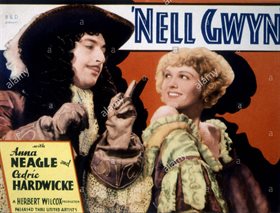
The oldest known surviving film was shot in the United Kingdom as well as early colour films. While film production reached an all-time high in 1936, the "golden age" of British cinema is usually thought to have occurred in the 1940s, during which the directors David Lean, Michael Powell, and Carol Reed produced their most critically acclaimed works. Many British actors have accrued critical success and worldwide recognition, such as Audrey Hepburn, Olivia de Havilland, Vivien Leigh, Glynis Johns, Maggie Smith, Laurence Olivier, Michael Caine, Sean Connery, Ian Mckellen, Joan Collins, Judi Dench, Julie Andrews, Daniel Day-Lewis, Gary Oldman, Emma Thompson, Anthony Hopkins and Kate Winslet. Some of the films with the largest ever box office returns have been made in the United Kingdom, including the fourth and fifth highest-grossing film franchises.

The British Film Institute (BFI) is a film and television charitable organisation which promotes and preserves film-making and television in the United Kingdom. The BFI uses funds provided by the National Lottery to encourage film production, distribution, and education. It is sponsored by the Department for Culture, Media and Sport, and partially funded under the British Film Institute Act 1949.

John Harvey was an English actor. He appeared in 52 films, two television films and made 70 television guest appearances between 1948 and 1979.

Halas and Batchelor was a British animation company founded by husband and wife John Halas and Joy Batchelor. Halas was a Hungarian émigré to the United Kingdom. The company had studios in London and Cainscross, in the Stroud District of Gloucestershire.

The BFI National Archive is a department of the British Film Institute, and one of the largest film archives in the world. It was founded as the National Film Library in 1935; its first curator was Ernest Lindgren. In 1955, its name became the National Film Archive, and, in 1992, the National Film and Television Archive. It was renamed BFI National Archive in 2006.

Nell Gwyn is a 1934 British historical drama film directed by Herbert Wilcox and starring Anna Neagle, Cedric Hardwicke, Jeanne de Casalis, Miles Malleson and Moore Marriott. The film portrays the historical romance between Charles II of England and the actress Nell Gwyn. In the opening credits, the dialogue is credited to "King Charles II, Samuel Pepys and Nell Gwyn" with additional dialogue by Miles Malleson. It was also released as Mistress Nell Gwyn.
The British Film Institute (BFI) is a charitable organisation established in 1933, based in the United Kingdom. It has awarded its Fellowship title to individuals in "recognition of their outstanding contribution to film or television culture" and is considered the highest accolade presented by the Institute: British actor John Hurt said the award was "the highest honour possible".
Kenneth Jones was a British conductor and composer of film and television music. Among his work Jones was musical director for the television chat show Aspel & Company and wrote the scores for several comedy films.






